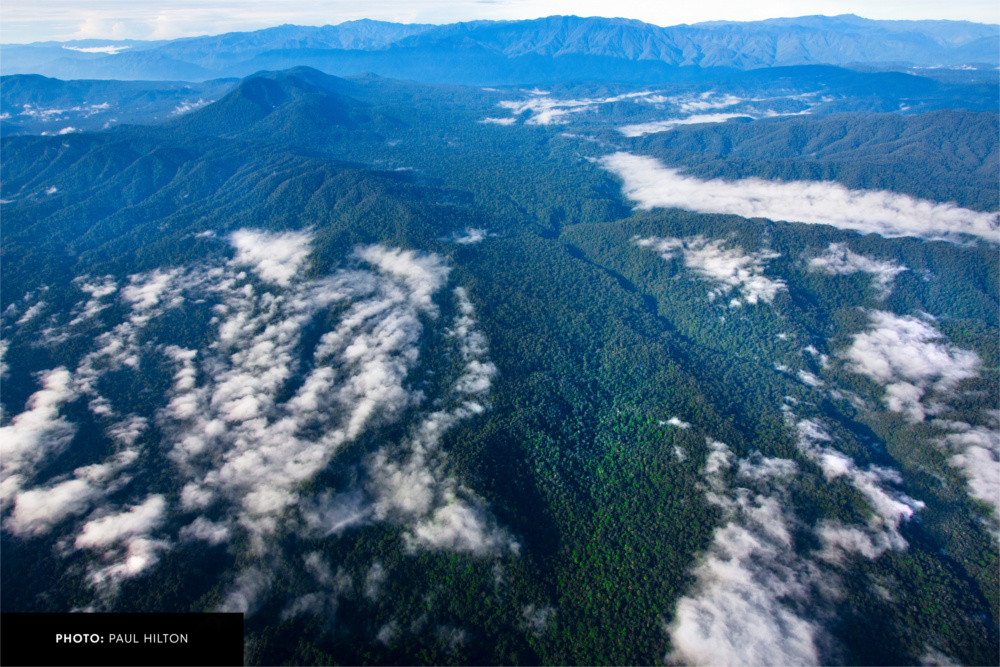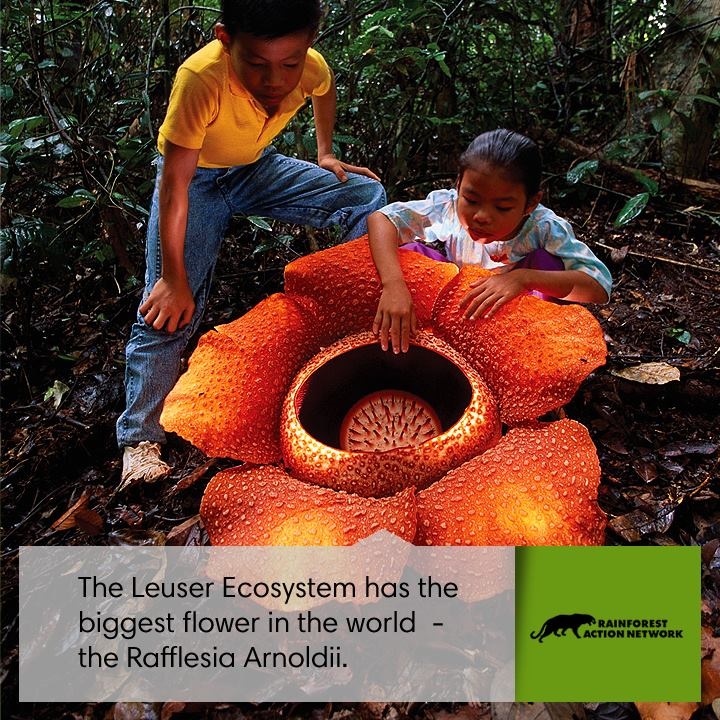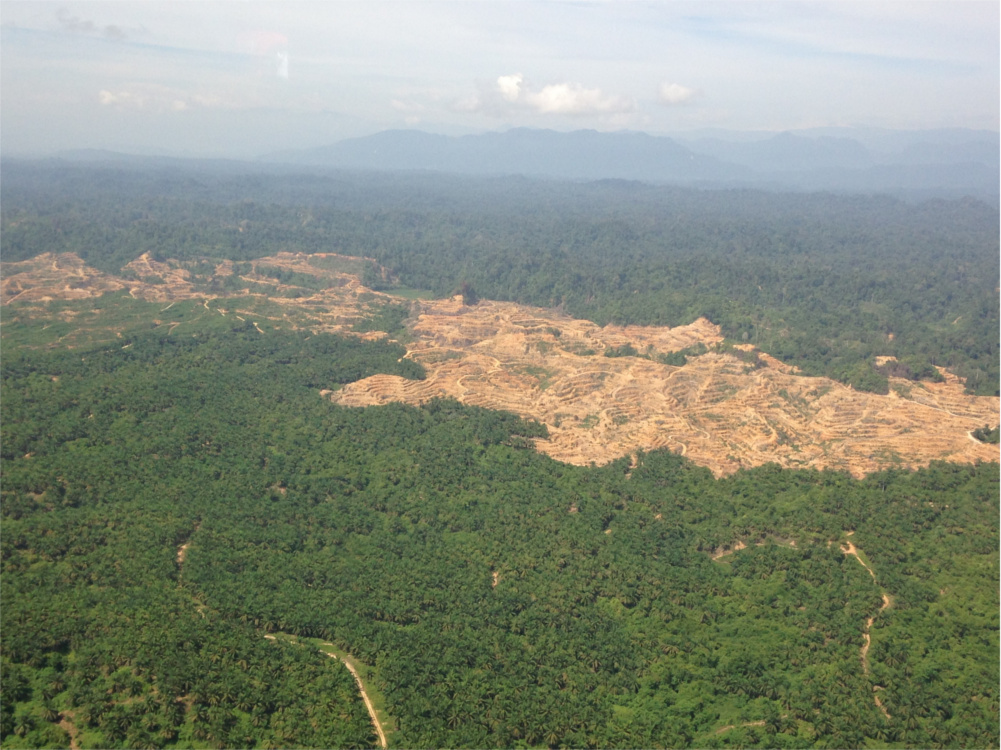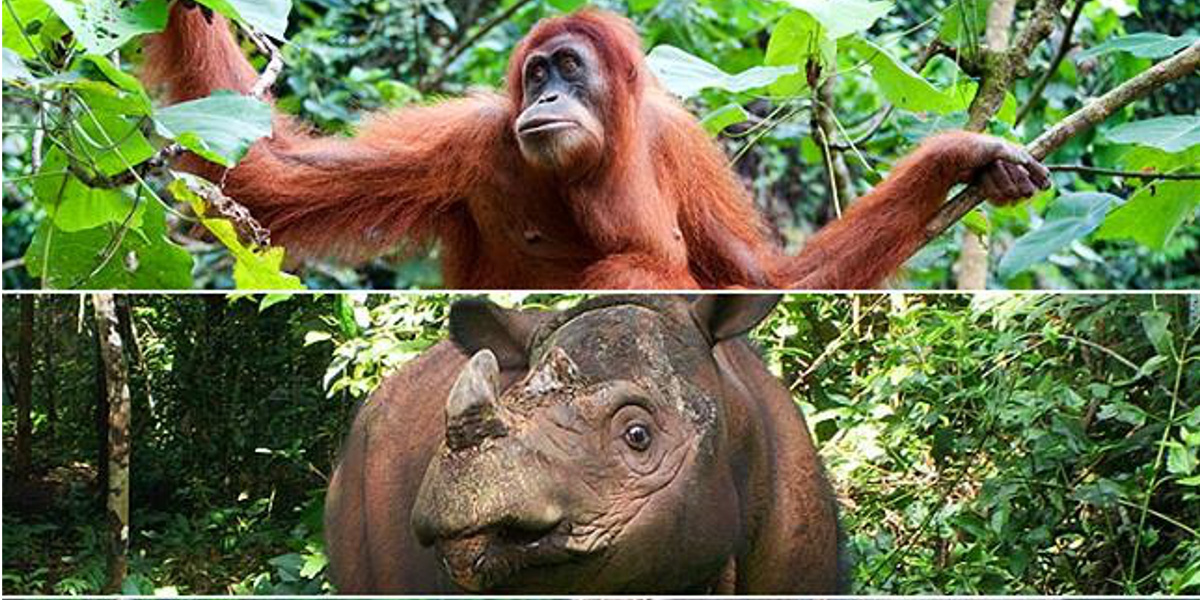Imagine a place where some of the world’s most unique animals—like tigers, elephants, and sun bears—roam side by side. Where towering trees, lush ferns and an abundance of tropical plants grow forming a vibrant green landscape as far as the eye can see. Where the forest is so full of life that at times the orchestra of all the different insects, primates, and birds can seem deafening.
Although this sounds like a place straight out of an imaginative fairytale, this place is real. It’s called the Leuser Ecosystem—6.5 million acres of lush, verdant tropical rainforests located on the Northern tip of the island of Sumatra, Indonesia. The Leuser Ecosystem is considered to be among the most important forests left in Southeast Asia. Besides supporting some of the world’s highest known levels of plant and animal diversity, it also provides a steady, clean water supply to millions of people in the province of Aceh.

Like any common fairytale, lurking in the shadows are the villains of the story. Despite being protected under Indonesian national law, the Leuser Ecosystem is under siege from palm oil plantations and multiple other development plans, like mining and pulp and paper plantations.
Of the different forest landscapes that comprise the Leuser Ecosystem, the lowland forests are some of the most important yet face greatest risk of destruction as they are the targets for industrial palm oil plantation expansion.
 The lowland forests, located in Aceh Tamiang, Aceh Utara, Aceh Timur and Aceh Selatan, contain the highest biodiversity of all the forest systems found within the Leuser Ecosystem. Both the largest and the tallest flowers in the world, the Rafflesia and Amorphophallus, can be found here, along with the largest and tallest trees in the region, which provide critical habitat for tigers, elephants, rhinos and sun bears. These dense lowland forests also support populations of clouded leopards, hornbills, many species of primates—including the critically endangered Sumatran orangutan—deer, insects and amphibians.
The lowland forests, located in Aceh Tamiang, Aceh Utara, Aceh Timur and Aceh Selatan, contain the highest biodiversity of all the forest systems found within the Leuser Ecosystem. Both the largest and the tallest flowers in the world, the Rafflesia and Amorphophallus, can be found here, along with the largest and tallest trees in the region, which provide critical habitat for tigers, elephants, rhinos and sun bears. These dense lowland forests also support populations of clouded leopards, hornbills, many species of primates—including the critically endangered Sumatran orangutan—deer, insects and amphibians.
Any expansion of industrial palm oil in these lowland forests would trigger virtual destruction of the integrity of the ecosystem and condemn several species to probable extinction.
One of the most controversial palm oil producers responsible for the destruction of the Leuser Ecosystem’s lowland forests is PT. Aloer Timur, who was found clearing a critical elephant corridor on April 30, 2015. A report produced by Greenomics Indonesia presents evidence from spatial monitoring and field observations that documents the clearing of High Carbon Stock (HCS) forests in a PT. Aloer Timur concession located inside the Leuser Ecosystem. RAN confirmed this destruction in June 2015. At the end of June, Greenomics released another report with photographic evidence showing PT. Aloer Timur had still been bulldozing HCS forests as of June 24, 2015.
 Destruction of the lowland rainforests of the Leuser Ecosystem by PT. Aloer Timur (Mopoli Raya). Aceh, Indonesia. June 2015.
Destruction of the lowland rainforests of the Leuser Ecosystem by PT. Aloer Timur (Mopoli Raya). Aceh, Indonesia. June 2015.
PT. Aloer Timur is an example of a Conflict Palm Oil producer who is driving the destruction of the priceless lowland rainforests of the Leuser Ecosystem. RAN is calling on PT. Aloer Timur to permanently halt the clearance of the rainforests and for its parent company, Mopoli Raya Group, to adopt and implement a responsible palm oil policy to ensure it is not driving the destruction of the rainforests across Indonesia.
PT. Aloer Timur is a supplier of palm oil giants Musim Mas Group and Wilmar International, both of whom have made commitments to protect rainforests from palm oil expansion. After being made aware of this evidence, Musim Mas and Wilmar suspended their contracts with PT. Aloer Timur. This is a positive first step, now more needs to be done to prevent future clearance of forests by PT. Aloer Timur and other bad actors operating in the Leuser Ecosystem. Wilmar, Musim Mas and other members of the Indonesia Palm Oil Pledge (IPOP) must proactively find solutions to secure permanent protections for the priceless Leuser Ecosystem.
The next step Musim Mas and Wilmar and all IPOP companies must take is to immediately implement a moratorium on the clearance of rainforests and peatlands in the Leuser Ecosystem in order to break the link between the palm oil they sell to companies, including the Snack Food 20, and destructive palm oil production practices.
You can help us protect the Leuser Ecosystem by taking action today. There is too much at stake to lose this amazing place.
